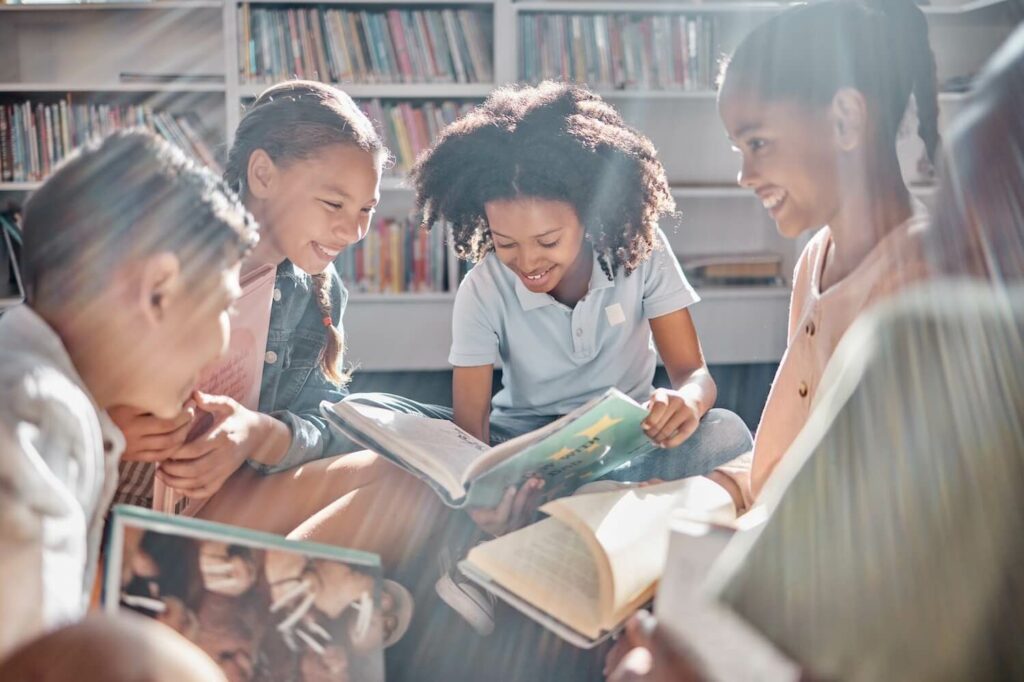Social emotional learning (SEL) is an important part of education for elementary school students. It helps students to understand and manage their emotions, build positive relationships with others, and develop responsible decision-making skills. When we look closer at SEL we can identify many essential learning skills and activities that can be used.
Best SEL Activities for Students in School:
SEL activities are designed to help students develop key skills such as self-awareness, self-management, social awareness, relationship skills, and responsible decision-making. Here are some SEL activities that are suitable for elementary students:
- Feelings Charades: This game involves acting out different emotions and having the other students guess what emotion is being acted out. It helps students identify and understand emotions.
- Emotion Walk: Students walk around the classroom while listening to music and are asked to move in a way that reflects different emotions. This activity helps students connect emotions with movement.
- Mindful breathing: Students practice taking deep breaths and focusing on the present moment. This activity can help students reduce stress and improve focus.
- Classroom Gratitude Jar: Students write down things they are grateful for on small slips of paper and place them in a jar. This activity helps students develop a positive mindset and appreciate the good things in their lives.
- Positive Self-Talk: Students practice saying positive affirmations to themselves such as “I can do it!” and “I am capable!” This activity can help students develop self-confidence and positive self-talk.
- The Giving Tree: Students create a tree on the classroom wall and write down acts of kindness they have done or received on leaves. This activity promotes kindness and community building.
- My Feelings Journal: Students write about their feelings in a journal and draw pictures to go along with their entries. This activity helps students process and regulate their emotions.
- Storytelling Circle: Students take turns sharing stories about their experiences. This activity helps students develop empathy and understanding for others.
- Role-playing: Students act out different social scenarios and practice different responses to them. This activity helps students develop empathy, communication and problem solving skills.
- Positive Notes: Students write positive notes to each other and place them in a designated area in the classroom. This activity promotes kindness and builds positive relationships and positive learning environments among students.
Great Social Emotional Learning Skills to Teach Students:
SEL learning skills are critical life skills that help students navigate and manage their emotions, build positive relationships, and make responsible decisions. These skills are essential for academic and personal success, and are important for individuals of all ages to develop and practice throughout their lives.
Here are some of the key social emotional learning skills:
- Self-Awareness: The ability to identify and understand one’s own emotions, strengths, and weaknesses.
- Self-Management: The ability to regulate one’s emotions, thoughts, and behaviors in a positive and productive way.
- Social Awareness: The ability to understand and empathize with others’ emotions, perspectives, and experiences.
- Relationship Skills: The ability to build and maintain positive relationships, communicate effectively, and resolve conflicts.
- Responsible Decision-Making: The ability to make thoughtful and informed decisions based on ethical and moral considerations.
- Empathy: The ability to understand and share the feelings of others.
- Positive Mindset: The ability to focus on the positive aspects of a situation and maintain a hopeful attitude.
- Communication Skills: The ability to express oneself clearly and listen actively to others.
- Problem-Solving: The ability to identify problems, analyze them, and develop effective solutions.
- Self-Care: The ability to take care of oneself physically, emotionally, and mentally.
In conclusion, social emotional learning (SEL) is a crucial aspect of school education for elementary school students.
SEL activities are designed to help students develop key skills such as self-awareness, self-management, social awareness, relationship skills, and responsible decision-making. Through these activities, students can better understand and manage their emotions, build positive relationships with others, and develop important life skills. It is important to recognize the significance of SEL and its impact on academic and personal success. By focusing on these skills and activities, we can help students build a strong foundation for their future success and well-being.



